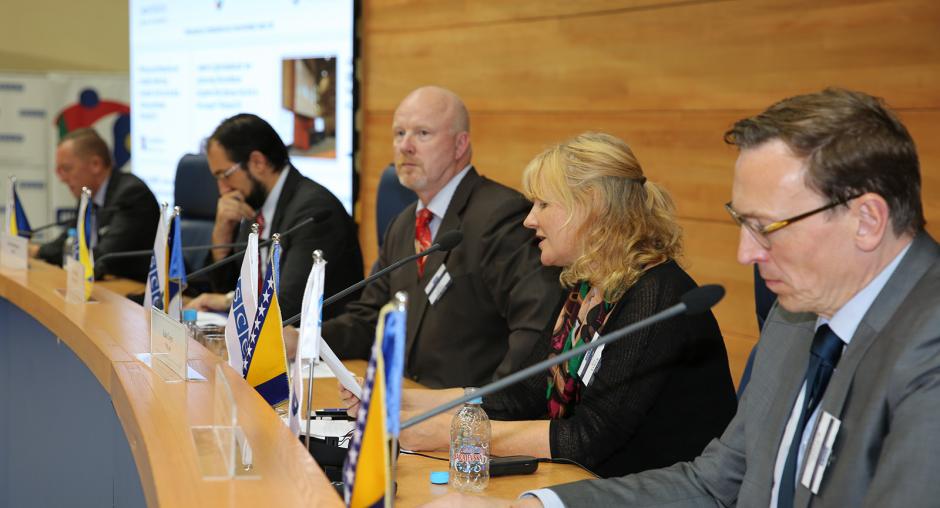Human rights must be guaranteed when fighting violent extremism online, participants at OSCE workshop in Sarajevo say

SARAJEVO, 8 September 2016 – Laws and policies on content blocking, surveillance and other online measures to counter terrorism must also safeguard the fundamental right to free expression online, according to participants at an OSCE-sponsored two-day event in Sarajevo, which ended today.
This was one of the main conclusions of the expert workshop “Freedom of Expression on the Internet and Countering Violent Extremism and Radicalization that Lead to Terrorism,” (VERLT) organized by the OSCE with the support of Bosnia and Herzegovina’s Ministry of Security. Some 120 participants representing governmental authorities, international organizations, academia, civil society and media met to discuss and share best practices related to online measures taken by governments and intermediaries to counter VERLT and their implications for fundamental human rights. Participants explored how the use of communications technologies can advance efforts to counter VERLT on the Internet.
The Minister of Security, Dragan Mektić, underlined that the biggest threat related to misuse of the Internet is the unobstructed and limitless spread of the terrorist ideology and propaganda.
“We are aware of the complexity of the problem, and it is clear that the biggest role in the prevention of these illegal activities should be played by governmental structures, especially national cyber space regulators and security services. They have the task of protecting citizens from all threats, including those coming from cyber-space,” Mektić said. He also stressed that in addressing these threats, basic human rights and freedoms, the rule of law and democratic values must be respected.
Dunja Mijatović, OSCE Representative on Freedom of the Media, said in her opening address that national security concerns are on many occasions used to restrict freedom of speech online, contravening OSCE commitments and international standards for the protection of human rights. She urged governments to look for other solutions, highlighting the need to facilitate credible counter-speech.
“We should not be willing to compromise on the idea of the Internet as an open, free and secure place for communication,” Mijatović said. “Free expression and new technologies should be looked upon as tools to counter terrorism and not as a restraint in the fight against it.”
“Violent extremism is a comprehensive problem which societies and communities must prevent at its early stages. In the modern world, understanding the Internet and traditional media both as tools for violent radicalization and as a means of presenting alternative views through counter-messaging are key aspects of this approach,” said Ambassador Jonathan Moore, Head of the OSCE Mission to Bosnia and Herzegovina.
The workshop was organized as a follow-up to a similar OSCE workshop in Bucharest last year on media freedom and responsibilities in the context of counter-terrorism policies. The results and recommendations from that conference are available at: //www.osce.org/secretariat/179661
The workshop in Sarajevo will also produce guidelines and recommendations that will be published on the conference webpage.
The Communique on free expression and the fight against terrorism is available at: //www.osce.org/fom/261951
The Communique on the impact of laws countering extremism on freedom of expression and freedom of the media is available at: //www.osce.org/fom/125186
